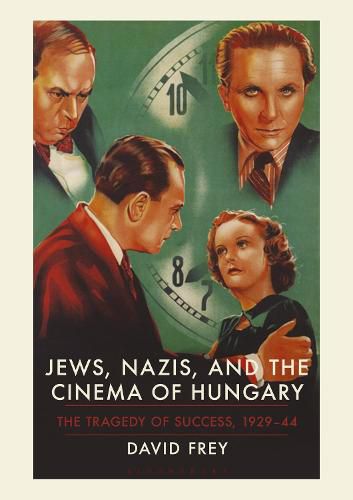Readings Newsletter
Become a Readings Member to make your shopping experience even easier.
Sign in or sign up for free!
You’re not far away from qualifying for FREE standard shipping within Australia
You’ve qualified for FREE standard shipping within Australia
The cart is loading…






Between 1929 and 1942, Hungary’s motion picture industry experienced meteoric growth. It leapt into Europe’s top echelon, trailing only Nazi Germany and Italy in feature output. Yet by 1944, Hungary’s cinema was in shambles, internal and external forces having destroyed its unification experiments and productive capacity. This original cultural and political history examines the birth, unexpected ascendance, and wartime collapse of Hungary’s early sound cinema by placing it within a complex international nexus. Detailing the interplay of Hungarian cultural and political elites, Jewish film professionals and financiers, Nazi officials, and global film moguls, David Frey demonstrates how the transnational process of forging an industry designed to define a national culture proved particularly contentious and surprisingly contradictory in the heyday of racial nationalism and antisemitism.
$9.00 standard shipping within Australia
FREE standard shipping within Australia for orders over $100.00
Express & International shipping calculated at checkout
Between 1929 and 1942, Hungary’s motion picture industry experienced meteoric growth. It leapt into Europe’s top echelon, trailing only Nazi Germany and Italy in feature output. Yet by 1944, Hungary’s cinema was in shambles, internal and external forces having destroyed its unification experiments and productive capacity. This original cultural and political history examines the birth, unexpected ascendance, and wartime collapse of Hungary’s early sound cinema by placing it within a complex international nexus. Detailing the interplay of Hungarian cultural and political elites, Jewish film professionals and financiers, Nazi officials, and global film moguls, David Frey demonstrates how the transnational process of forging an industry designed to define a national culture proved particularly contentious and surprisingly contradictory in the heyday of racial nationalism and antisemitism.